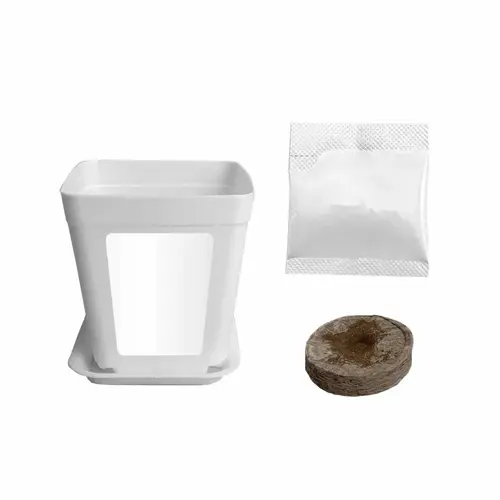How do self-watering pots prevent mosquito breeding?

Written by
Nguyen Minh
Reviewed by
Prof. Samuel Fitzgerald, Ph.D.Through intelligent designs and water reserve systems, Self-watering pots keep mosquito breeding in check. Water access points are covered to prevent adult insects from entering. Overflow drainage systems reduce standing water where larvae thrive. These components serve as effective control mechanisms to protect your plants in a non-pesticide manner. Your container will be free of insects, and the plants will be properly hydrated.
Sealed Access Points
- Tight fitting lids cover all reservoir openings completely
- Narrow fill tubes prevent adult mosquitoes from entering
- Gasket seals around wick openings block insect access
- These barriers stop egg laying in water reservoirs
Water Circulation Systems
- Overflow holes maintain water movement preventing stagnation
- Continuous capillary action refreshes surface water
- This movement disrupts larvae development cycles
- Moving water creates unsuitable egg laying conditions
Protective Additives
- Mosquito dunks release natural BTI bacteria safely
- Mineral oil layers suffocate larvae without harming plants
- Cinnamon oil solutions deter egg laying naturally
- These options provide extra protection during peak seasons
Normal upkeep keeps systems free of mosquitoes. Although the products state that they contain no standing water, water should still be rotated every ten days to interrupt mosquito breeding cycles. Clean up reservoirs with vinegar solutions at least once a month. Check seals on reservoirs periodically for damage. Consequently, by engaging in these routines, you prevent algae from building up and attracting insects. I also conduct short inspection activities every week while gardening.
Improving protection through placement strategies. Place pots in the windiest areas to disrupt the flight of mosquitoes. It is also important to avoid dense vegetation in the area, as this can provide insects with a refuge. Elevating pots off stands also helps increase airflow around the containers. After implementing these changes, my balcony pots have remained free from insects.
Well-kept self-watering pots are superior to conventional containers and prevent mosquito breeding better than these other containers because of their closed environments, which eliminate access for insects. You can enjoy gardening without worrying about using a chemical spray. Additionally, these containers work simultaneously to address both watering and mosquito safety concerns.
You can compare self-watering containers to other water sources. Bird baths provide a new reason to clean, as they should be cleaned at least once a week to prevent the breeding of mosquitoes. Rain barrels should be fitted with mesh screens to prevent debris and insects from entering. Ponds require frequent monitoring. Your plant pots will protect you from issues related to watering and provide you with protection based on intelligent design through engineering.
Read the full article: 7 Essential Self Watering Pots Insights

